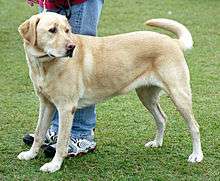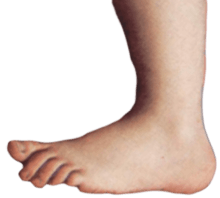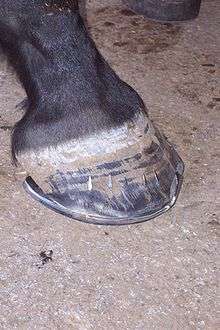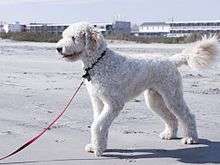Definify.com
Webster 1913 Edition
Pes
‖
Pes
(pēz)
, Noun.
pl.
Pedes
. [L., the foot.]
(Anat.)
The distal segment of the hind limb of vertebrates, including the tarsus and foot.
Definition 2026
pes
pes
Catalan
Etymology
From Old Provençal pes, from Vulgar Latin *pēsum, from Latin pensum.
Noun
pes m (plural pesos)
Related terms
Czech
Etymology
From Proto-Slavic *pьsъ.

A dog (a Labrador)
Pronunciation
- IPA(key): /pɛs/
- Rhymes: -ɛs
Noun
pes m anim
Declension
Declension of pes
Derived terms
Antonyms
- (male dog): fena
Friulian
Alternative forms
- peš (alternative orthography)
Etymology
From Latin piscis, piscem.
Noun
pes m (plural pes)
Related terms
Latin

pēs hūmānus (human foot)

pēs equī (foot of a horse)
Etymology
From Proto-Indo-European *pṓds (compare Sanskrit पद् (pád), Ancient Greek πούς (poús) and Old English fōt, English foot).
Pronunciation
- (Classical) IPA(key): /peːs/
Noun
pēs m (genitive pedis); third declension
- a foot, of a human or animal
- Ne manus, nec pedes, nec alia membra.
- Not the hands, not the feet, and not the other limbs.
- Ne manus, nec pedes, nec alia membra.
- foot of a table or stool
- base of a mountain
- ground, soil, territory
- (nautical) rope attached to a sail for setting it
- (botany) the pedicel or stalk of a fruit
- (poetry) metrical foot
- (music) time
- a measure of length
Inflection
Third declension.
| Case | Singular | Plural |
|---|---|---|
| nominative | pēs | pedēs |
| genitive | pedis | pedum |
| dative | pedī | pedibus |
| accusative | pedem | pedēs |
| ablative | pede | pedibus |
| vocative | pēs | pedēs |
Hyponyms
- (metrical foot):
- trochaeus
- pes di[s]syllbus: choreus, jambus, spondeus (spondius, spondeos); pes bibrevis
- pes trisyllabus: amphibrachus = amphibrachys, amphimacrus, dactylus, extensipes, molossus; [pes] anapaestus; pes antanapaestus, pes antibacchius, pes bacchius, pes creticus, pes hippius
- pes tetrasyllbus: antispastus, chorjambus, dichoreus, dijambus, dispondeus, epitritus, paeon, proceleumaticus = proceleusmaticus
- pes pentasyllbus: dochmius, mesobrachys, mesomacros, pariambodes, probrachys; pes amoebaeus, pes antamoebaeus, pes orthius
Derived terms
Terms derived from pes
Related terms
Related terms
Descendants
References
- pes in Charlton T. Lewis and Charles Short (1879) A Latin Dictionary, Oxford: Clarendon Press
- pes in Charlton T. Lewis (1891) An Elementary Latin Dictionary, New York: Harper & Brothers
- PES in Charles du Fresne du Cange’s Glossarium Mediæ et Infimæ Latinitatis (augmented edition, 1883–1887)
- Félix Gaffiot (1934), “pes”, in Dictionnaire Illustré Latin-Français, Paris: Hachette.
- Meissner, Carl; Auden, Henry William (1894) Latin Phrase-Book, London: Macmillan and Co.
- to begin a journey (on foot, on horseback, by land): iter ingredi (pedibus, equo, terra)
- to go on foot: pedibus ire
- to trample under foot: pedibus obterere, conculcare
- to have the gout: ex pedibus laborare, pedibus aegrum esse
- to vote for some one's motion: discedere (pedibus), ire in alicuius sententiam (Liv. 23. 10)
- to serve in the cavalry, infantry: equo, pedibus merere (Liv. 27. 11)
-
(ambiguous) a hand-to-hand engagement ensued: tum pes cum pede collatus est (Liv. 28. 2)
-
(ambiguous) to fall at some one's feet: ad pedes alicuius accidere
-
(ambiguous) to throw oneself at some one's feet: ad pedes alicuius se proicere, se abicere, procumbere, se prosternere
-
(ambiguous) to prostrate oneself before a person: ad pedes alicuius iacēre, stratum esse (stratum iacēre)
-
(ambiguous) to fail to see what lies before one: quod ante pedes est or positum est, non videre
-
(ambiguous) to never set foot out of doors: domo pedem non efferre
-
(ambiguous) to cross the threshold: pedem limine efferre
-
(ambiguous) a hand-to-hand engagement ensued: tum pes cum pede collatus est (Liv. 28. 2)
-
(ambiguous) hand to hand: collato pede (Liv. 6. 12)
-
(ambiguous) to retire (without turning one's back on the enemy): pedem referre
- to begin a journey (on foot, on horseback, by land): iter ingredi (pedibus, equo, terra)
- pes in Harry Thurston Peck, editor (1898) Harper's Dictionary of Classical Antiquities, New York: Harper & Brothers
- pes in William Smith et al., editor (1890) A Dictionary of Greek and Roman Antiquities, London: William Wayte. G. E. Marindin
Old French
Etymology
Noun
pes f (oblique plural pes, nominative singular pes, nominative plural pes)
- Alternative form of pais (“peace”)
- circa 1250, Marie de France, Guigemar
- Va t'en de ci ! Lai me aveir pes.
- Go, leave me! Let me have peace.
- Va t'en de ci ! Lai me aveir pes.
- circa 1250, Marie de France, Guigemar
Slovak
Etymology
From Proto-Slavic *pьsъ.
Noun
pes m (genitive singular psa)
Declension
Declension of pes
Derived terms
Usage notes
Declension pattern dub if you are referring to dogs in general or chlap if you are referring to them as pets (that is you think of them as persons).
Slovene

Velik bel pes - A large white dog
Etymology
From Proto-Slavic *pьsъ.
Pronunciation
- IPA(key): /ˈpə́s/
- Tonal orthography: pə̏s
Noun
pès m anim (genitive psà, nominative plural psì, feminine psíca)
- dog
- Imamo tri pse.
- We have three dogs.
- Na sprehod grem s svojim psom.
- I'm going on a walk with my dog.
- Imamo tri pse.
Declension
Declension of pes (masculine anim., hard o-stem)
Synonyms
Tok Pisin
Etymology
Noun
pes
- (anatomy) face
- 1989, Buk Baibel long Tok Pisin, Bible Society of Papua New Guinea, Genesis 3:19 (translation here):
- Na bai yu wok hat tru long kisim kaikai bilong yu na tuhat bai i kamap long pes bilong yu. Na bai yu hatwok oltaim inap yu dai na yu go bek long graun. Long wanem, mi bin wokim yu long graun, na bai yu go bek gen long graun.”
- 1989, Buk Baibel long Tok Pisin, Bible Society of Papua New Guinea, Genesis 3:19 (translation here):
This entry has fewer than three known examples of actual usage, the minimum considered necessary for clear attestation, and may not be reliable. Tok Pisin is subject to a special exemption for languages with limited documentation. If you speak it, please consider editing this entry or adding citations. See also Help and the Community Portal.